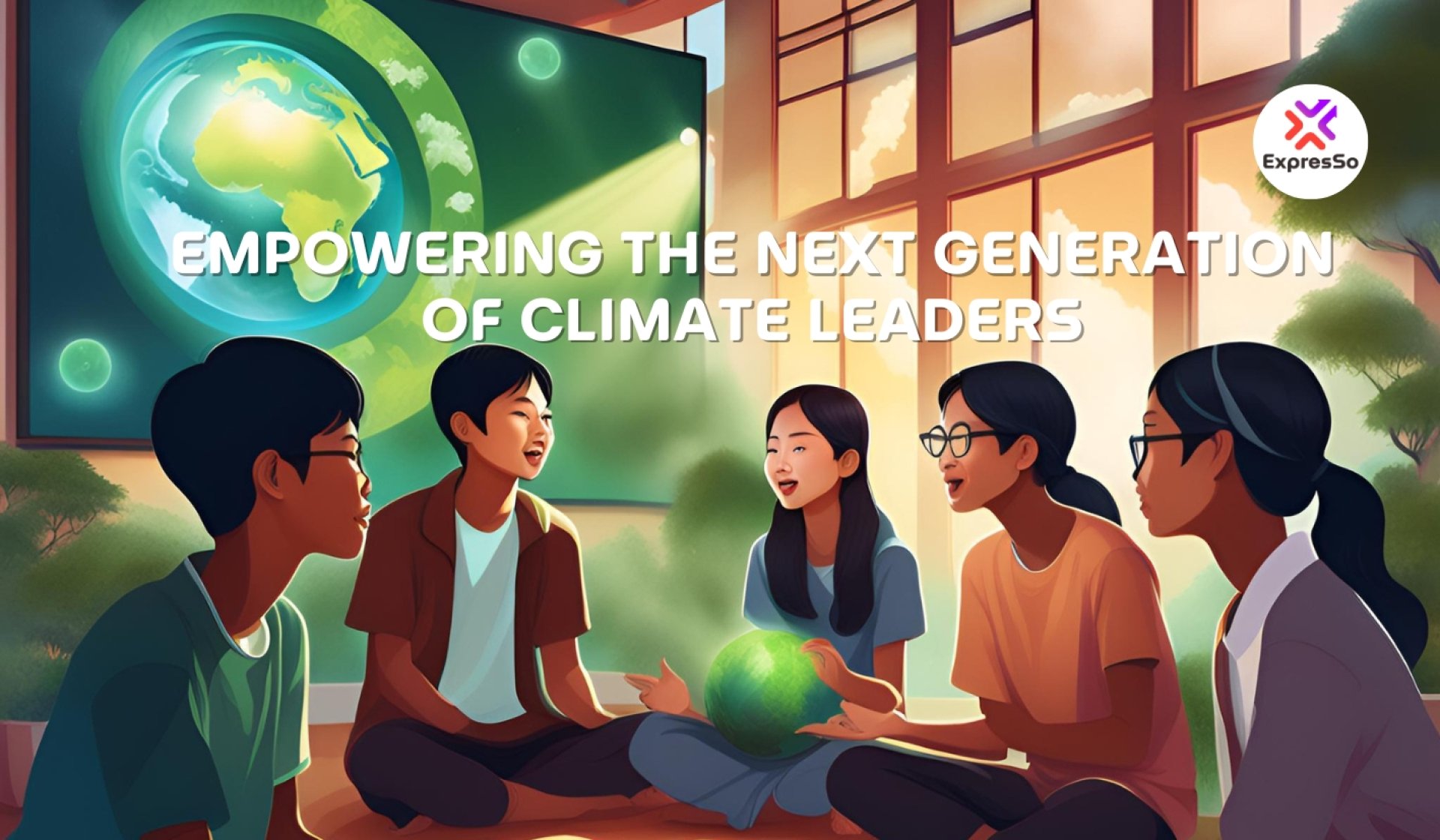Empowering the Next Generation of Climate Leaders

As Thailand prepares to celebrate Children's Day (known as Wan Dek) on Saturday, 11 January 2025, it's the perfect moment to reflect on the critical role that children and young people play in shaping a sustainable future. On this day, we honor their potential and creativity, recognizing that they are not only our future leaders, but also our changemakers today.
One of the most exciting developments in this movement is the upcoming OECD's PISA 2025 program, which will be focusing on climate change education for the first time in nearly a decade. The program will assess how 15-year-old students from 92 countries are equipped to act on climate change --- not just by measuring their knowledge, but by evaluating their agency: their ability to make informed decisions, understand the impacts of human actions on the environment, and actively contribute to solving the global crisis. This shift represents a major step forward in recognizing the role of young people in the climate conversation.
Youth Empowerment Through Action
The OECD's focus on Agency in the Anthropocene is particularly significant. This initiative encourages students to go beyond theoretical knowledge and engage in real-world problem-solving. It's about helping young people understand their role in a larger, interconnected system and empowering them to take action. This means developing the ability to make choices that benefit the environment, even in the face of complex challenges.
A great example of how youth can translate knowledge into action comes from Josh Dorian, a student from Melbourne, Australia. As part of his environmental science studies, Josh and his classmates were involved in a hands-on project that examined the effects of logging on the habitat of the endangered leadbeater's possum. Not only did they learn about the challenges faced by this species, but they took steps to make a difference, such as building nesting boxes to help address the lack of hollow-bearing trees in the forest. This project demonstrates how children can contribute to conservation efforts, turning their understanding of environmental issues into real, positive outcomes.
Wan Dek: A Day to Celebrate Youth as Climate Leaders
On Children's Day, Thailand celebrates the spirit of youth, and it's the perfect opportunity to reflect on how we can support the next generation in becoming responsible, proactive global citizens. It's a day to acknowledge that children are not just our future --- they are already leaders and innovators in their own right. From participating in local environmental initiatives to coming up with new ideas for sustainable practices, young people are driving change in ways that we often overlook.
The Role of Education in Shaping Young Climate Leaders
For many young people, climate change can feel overwhelming --- an enormous challenge that's too big to even think about. Yet, as Dr. Peta White, an associate professor at Deakin University, points out, the key to climate change education is not to focus solely on the worst-case scenarios. Instead, it's about helping children understand the context of our current environmental crisis and empowering them to act with hope, responsibility, and creativity. Education isn't just about facts; it's about equipping young people to navigate complexity, evaluate diverse sources of information, and collaborate on solutions.
As the PISA 2025 results come in, they will show how well young people understand their role in addressing climate change and highlight the need for further education strategies. There are already signs that some countries are beginning to reflect this approach in their education systems, recognizing that a comprehensive understanding of climate change must be integrated across all subjects, not just science and geography.
Inspiration for Change: Supporting Youth-Led Initiatives
This Children's Day, let's celebrate the incredible contributions of youth to the fight against climate change. From grassroots projects to large-scale global initiatives, young people are proving that their voices matter. As we look ahead, it's essential that we continue to support and nurture these efforts, providing children with the tools, resources, and opportunities they need to lead. By celebrating their creativity, resilience, and passion, we can inspire more young people to take action and drive the change we so desperately need.
How Can We Empower Children to Lead the Way in Climate Action?
At ExpresSo NB, we believe in the power of young minds to shape a better future. As we celebrate Wan Dek 2025 and acknowledge the incredible role of children, we want to hear from you: how can we better empower the next generation to take the lead in tackling climate change?
Together, we can create a world where children are not only informed but also inspired to act --- and where their efforts become the foundation for a sustainable, thriving planet.
Reference : the Guardian


